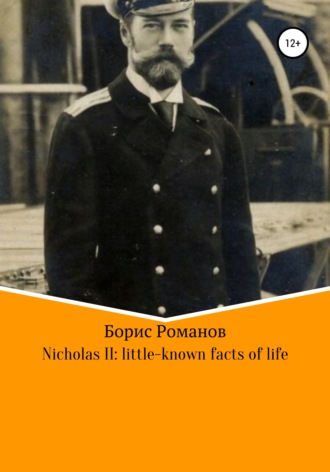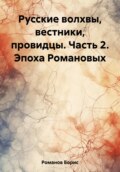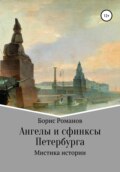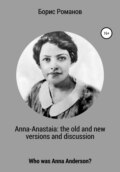
Борис Романов
Nicholas II of Russia: little-known facts of life
A few days after this meeting with Terakuto, an attempt on Nicholas’s life was made in the town of Otsu.
…Policeman Tsuda Sandzo pulled out his samurai sword and hit Nicholas on his head twice. Greek Prince George saved Nicholas’s life having deflected the third blow aside with his cane. Rickshaws seized and disarmed the assailant.
(Later on) by order of Alexander III the cane that had played such an outstanding role was decorated with adamants and given back Prince Gtorge.
As Terakuto had predicted, “the cane turned out to be stronger than the sword, and the cane started shining with glitter…” The first of the two prophecies came true.
For a few days, Nicholas remained sad… But he was only 23, and his melancholy could not last long… It is hard to believe that he was able to perceive the gist of the second prophecy at the time…
1896-1898
…Five years passed. They embraced his father’s death (Alexander III), his marriage to Hessian Princess Alice, the official coronation in Moscow, and numerous peoples’ deaths during the coronation festivities at the Khodynka Field…
By the way, according some data, the mass stampede took place not only at Khodynka Field in Moscow in 1896, but also earlier – at Golden Jubilee of Queen Victoria in London (in 1887): in the memoirs of Russian general Kuropatkin (due to the "Khodynka" in May 1896 in Moscow), we read: "The Duke of Edinburgh said that during the celebration of the 50th anniversary of the reign of Queen Victoria had 2,500 people were killed and several thousand injured and no one was embarrassed." (Nikolai II: Memoirs. Diaries. St. Petersburg., 1994. pp. 47-48.) Alexei Kouropatkin. From the diaries 1896. May 19. However, perhaps these memories is not correct, and there had mean not the 50th anniversary of the reign of Queen Victoria, but a mass stampede in 1883 in Sunderland (UK), where in the distribution of gifts to children in the concert hall "Victoria Hall" were killed 183 children
However, back in 1896. In August 1896, three months after the coronation, Nicholas II and Alexandra with their baby daughter Olga went for an extended European tour paying official and private visits to the august lords of Europe. In September, they arrived to the coast of Scotland. Queen Victoria (Grand Mother of the Russian Empress) was waiting for them in the Balmoral Castle.
Here Nicholas had received his second prophecy, this time from English Count Louis Hamon (also known as famous predictor Cheiro). The Prince of Wales passed the text of this prophecy to Nicholas.
Cheiro had predicted the future to monarchs, ministers, many famous people from Europe and America. In particular, he had predicted many events (including the dates of deaths) to Queen Victoria of Britain and the Prince of Wales (the future King of England), as well as the attempt on the life of the Persian Shah.
Long before the Titanic’s catastrophe, Hamon had predicted this tragedy.
Here is the gist of his prediction for Nicholas II:
“Whoever the man was that these numbers represented, would be haunted all his life by the horrors of war and bloodshed; that he would do his utmost to prevent it, but that his Destiny was so intimately associated with such things, that his name would be bound up with some of the most far-reaching and bloodiest wars that had ever been known, and that in the end he would lose all he loved most by sword or strife in one form or another.”
… Nicholas had no plans of war with whomever, and there were no signs of war in Europe in those years.
People in Russia and in the world saw him as a peaceful tsar.
One British newspaper wrote in early 1930s that in 1898 Nicholas II, under the influence of Cheiro's predictions for the upcoming bloody wars, had initiated convening of the Hague Peace Conference.
In 1898, Russia had sent out a note to governments all over the world naming the arms race unacceptable and offering to convene a conference on this issue.
There were many opponents among the world leaders, but thanks to Nicholas’s insistency, the conference took place in the Hague in May 1899. A Convention on the rule of carrying out wars was signed there, and – for the first time in history – an International Arbitration Court was established.
By the way, in 1901, Nicholas II and Russian diplomat Fyodor Martens have been nominated for the Nobel Peace Prize. The memory of Nicholas's II contribution to peace immortalized in the UN: the UN Secretariat posted Appeal Russian tsar to the peoples and governments of the world (1898), and there is a bust of Nicholas II there.
We can say that Nicholas II tried to “overcome his fate” – to prevent a possible war – already in the first years of his governance.
1901
Five years later, this time in Russia, Nicholas and Alexandra got another prediction of their own and the country’s tragic future. This time, the prophecy came from the past and was a lot more detailed than those of Terakuto and Hamon.
It was a prophecy of monk Avel (Abel, 1757-1841).
While Avel was alive, each Russian monarch, starting with Catherine II, had put him in prison after knowing the date of his or her date of death predicted by Avel.
Each following monarch, including Emperor Paul I, would let him out to discuss the enigmas of the future with him.
Avel's prophetic message was kept in a small exquisitely decorated box in Gatchina palace: in 1801 Emperor Paul I had put it into an envelope and inscribed on it:
“To be unsealed by my descendant on the hundredth anniversary of my death.”
The 100th anniversary came on March 12, 1901.
According to his Great Grandfather’s will, Nicholas and Alexandra decided to go to Gatchina to reveal the century-old secret. They departed joyfully, but came back very reflective and sad.
What was written in this message?
The text of the letter was published abroad in the early 1930s: first in Berlin, and later on, in Kharbin.
Here is what Avel wrote about the “last tsar:”
“…He will have big patience and dove’s purity… He will replace his crown of a tsar with a crown of thorns; he will be betrayed by his own people. … There will be a war, a very big war… People will fly in the air like birds, and swim under the water like fish; and they will extinguish each other with evil-smelling sulphur. The tsar’s throne will crash down on the eve of the victory. The treason will grow and abound. And your grandson will be betrayed, and many of your descendants will shed white their clothes with the blood of the Lamb; and a man with an ax will grasp the power in insanity, but will afterwards cry bitterly himself… Blood and tears will give drink to the mother earth. Bloody rivers will flow. Brother will rebel against brother… This is God’s connivance, God’s Anger for Russia’s abdication from its sovereign blessed by God. And there’s worse to come…
Two wars will come, each one more sorrowful than another. A new Khan Baty will raise his hand in the west. The people will get between the fire and flames. But Russian folk will not be extinguished from the face of the earth, as will be protected by the prayer of the tortured Tsar.”
…
…
By the beginning of the 20th century, three daughters were born in the royal family. Everybody had been hoping for an heir, but on June 5, 1901, the fourth daughter was born in the Tsar’s family; she was named Anastasia. No prayers for a son would help.
1903
Then a well known priest John Kronshtadsky told them about the Saint wonder-worker Seraphim Sarovsky (1759-1833).
Simple people considered him a Saint for a long while, but the Church had not canonized him as a righteous Holy man until 1903.
By the beginning of Nicholas II reign, Archpriest Johann had already gained the glory of a physician. He had even been healing remotely, like he did with the son of Bulgarian Tsar Boris. Thousands of people attended his bright prophecies.
By the end of his life (he died in 1908), father Johann had anticipated the approaching tragedy of Russia and was badly distressed by it. “Repent, wherefore an awful time is coming. It will be so awful that you cannot dare imagine…”
He offered to glorify/canonize Seraphim Sarovsky in 1903.
Father John wished to give to Royal Family a strong heavenly guardian…
Celebrations of glorifying and canonization were arranged in July of 1903.
Nicholas and Alexandra were going to Sarov with the entire family: they were going to pay homage to the remains of the Saint and pray to him for a birth of a son.
The Emperor’s train arrived in Arzamas where from the Royal Family started for Sarov – to the Diveyevsky Monastery, where they had spent three days in praying.
The Empress had been taking baths in the baptismal fount at night praying for a birth of a son. In those days, Reverend Seraphim was declared the Tsar’s family’s heavenly guardian.
On July 20, 1903, the 80-year old widow of Seraphim Sarovsky’s secretary passed a letter to Nicholas II. Seer Seraphim had written this letter specially for Nicholas II in the last year of his life (in 1833) and gave it to his secretary with the words:
“You will not live to see this, but your wife will see when the entire Royal Family will come to Diveyevo to pray on me, and the Tsar will come to see her. Let her pass then my letter to the Tzar”.
Nicholas II took the letter with veneration. He had read it after he came back to the Hegumen’s house and started crying bitterly after that. The court people tried to console him saying that Father Seraphim, though a Saint, could be wrong, but the Tsar was inconsolable.
The message from Seraphim Sarovsky had warned Nicholas II about all the major events in Russia in detail, up until the year 1918, and then later on until the end of the 20th century.
…
After gaining Seraphim Sarovsky as the heavenly guardian, Tsarina Alexandra conceived in the late autumn of 1903, and on July 30, 1904, she gave birth to a boy – the heir Prince Alexey – at the small Alexandria Palace in Petershof (suburb of St.Petersburg). Nicholas II wrote in his diary:
“July 30. An unforgettable and great day for us… I do not have enough words to thank God for the consolation he sent to us in this year…”
…
In 1903, Russia got into a deep political conflict with Japan and Great Britain. Nicholas, remembering that by predictions the war with Japan could be a very hard one, was agreeing to one concession after another. By 1902, the Trans-Siberian Railway was nearly completed; this helped the Russians trade in the Far East.
But on the eve of January 23 (1904), the Japanese military attacked the Russian squadron in Port Arthur…







